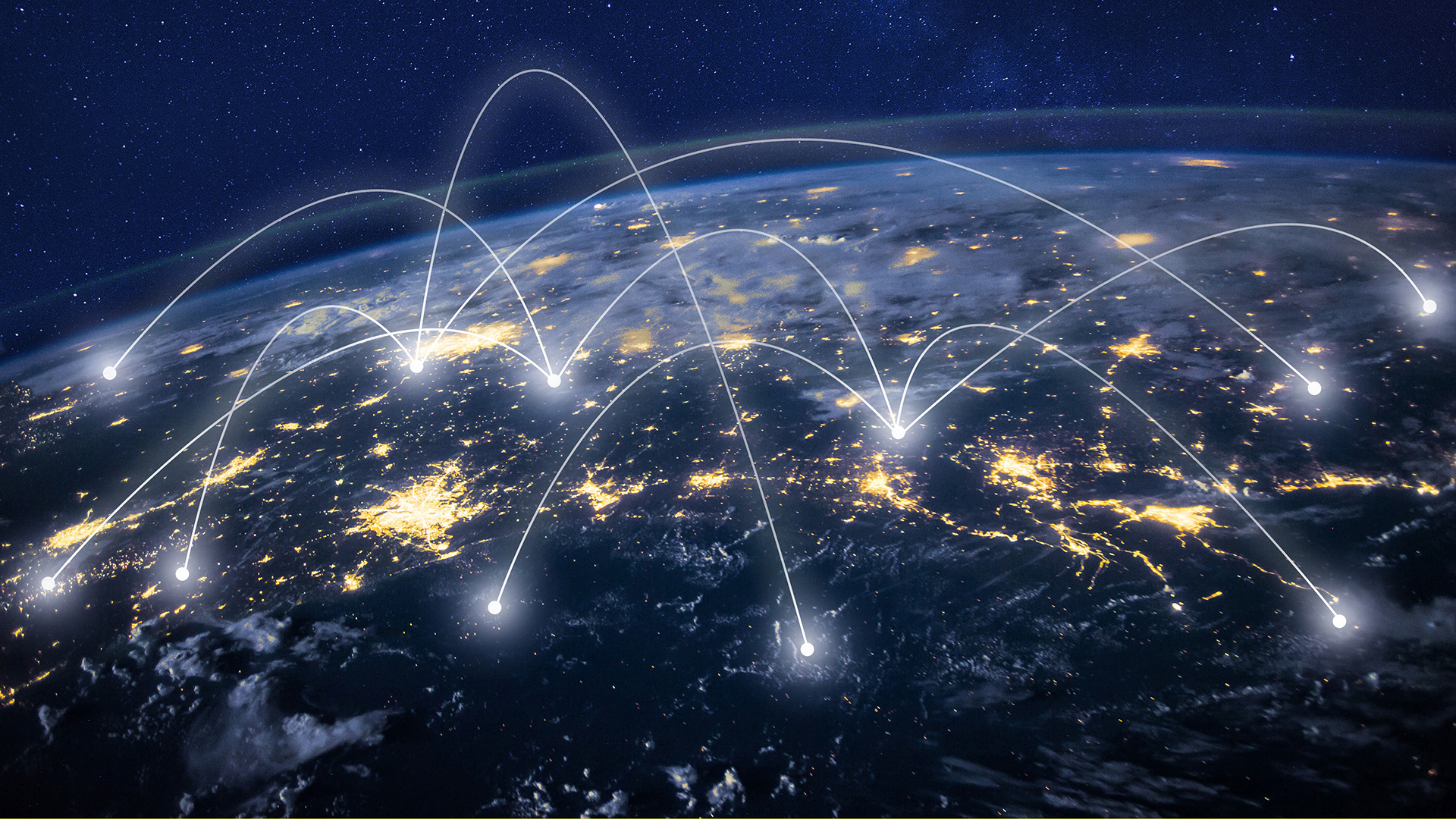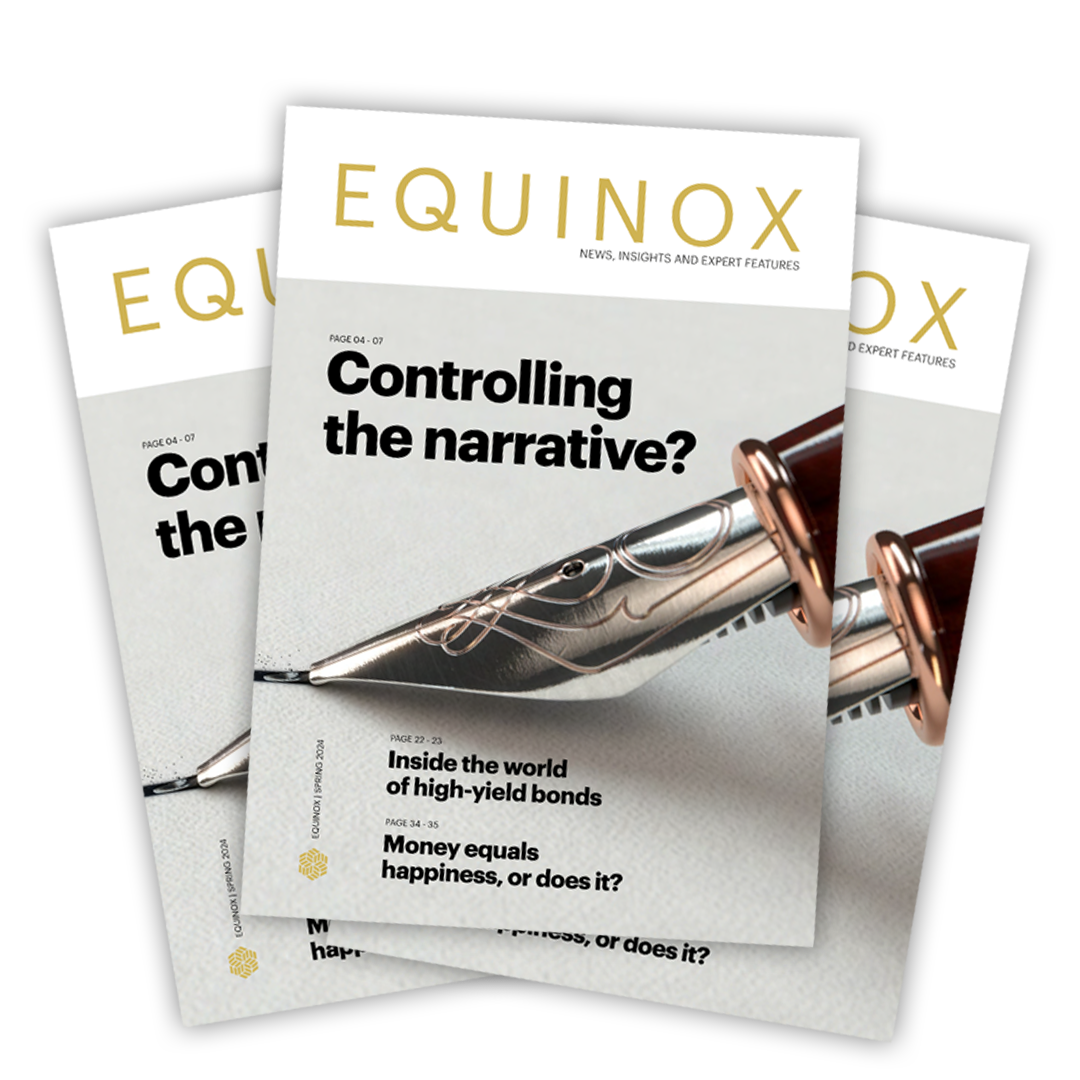Connecting the dots
We live in an increasingly inter-connected world.
Sometimes, there are connections you never knew existed and which only come to prominence when something goes wrong!
Currently, there are concerns about a potential shortage of meat on British supermarket shelves. This is partly driven by a lack of carbon dioxide (CO2) gas, often used to stun animals before slaughter.
The CO2 we use comes from fertiliser plants, with the gas being a by-product of production. The two largest fertiliser plants in the UK have temporarily shut down as the cost of natural gas – vital for fertiliser production – has surged.
Gas prices have surged partly because it hasn’t been very windy this summer, reducing the output from wind turbines, and so we have had to use more gas for our electricity. In addition, some parts of the gas supply network have been offline due to issues or planned maintenance (delayed due to COVID).
In summary, you may soon find it hard to buy sausages due to a lack of wind!
It is ironic that for much of the past few years we’ve been worrying about too much CO2 in the world and now we’re talking about a shortage. There are implications for other sectors too, ranging from medical to soft drinks.
This adds to existing issues in the UK food industry. There was already a problem in meat processing where around two thirds of workers are non-British. A combination of Brexit and COVID-19 has seen a large number of (mainly Eastern European) workers return home, leaving staffing around 15% below what is required. We are seeing similar issues with lorry drivers.
The potential lack of sausages is nothing to do with a lack of pigs, but the issue is those pigs are stuck at the farms. There is a risk that some may have to be culled if the problems don’t alleviate soon.
This is illustrative of a number of issues we see in supply chains still disrupted by the pandemic. Demand has recovered well and there is also enough supply of raw materials, it is just these are often in the wrong places or there are bottlenecks in getting them into the shops.
There has been a lot of talk about high inflation, but central banks have dismissed concerns saying that high prices are “transitory”. It is certainly true that price rises in certain sectors are caused by temporary factors and by “base effects” (as prices recover from a low base).
Even higher energy prices should be temporary and with price-caps in place, consumers are shielded from these for now. Of course, several energy companies could go bust in the meantime.
But some of these issues may not be as short-lived as first hoped. Some of those foreign workers may return as travel restrictions ease, but there is a strong sense that this is less likely in the post-Brexit world.
There are similar issues in health and social care sectors which have also relied on foreign workers historically.
Ultimately, many of these jobs are extremely hard work, some can be unpleasant, and all are relatively lowly paid. A recent newspaper article highlighted a trend of care workers leaving the sector to work in Amazon fulfilment centres, where they can get paid 20% more.
In order to make some of these jobs more attractive, wages may need to increase, but of course this has knock-on implications. Ultimately, we may have to accept paying more for our food, for example.
All this has led us to increase inflation protection in our portfolios, reducing exposure to fixed interest bonds and increasing “real assets” like property and infrastructure, as well as absolute return strategies.
We expect UK inflation to climb above 4% later this year, but despite price pressures we still think it should then fall back.
One of the biggest components of inflation remains transport costs – largely driven by the oil price. Brent crude has roughly doubled in the last year and now stands at around $75 a barrel. However, to achieve the same level of inflation over the next year it needs to double again to $150 a barrel. We think this is highly unlikely.
Pork, prices and property
Meanwhile in China, inflation is currently very low at just 0.8%, Ironically, this is mainly due to very low pork prices which are down 44% compared to the same time last year!
Pork is such a staple food in China that it is a big part of the inflation basket, but this means the headline figure is hiding issues in other industries.
Producer prices, which measures inflation of goods as they leave the factory, were up 9.5% over the same period. Given China’s status as a major exporter, this puts further pressure on inflation in the rest of the world.
We’ve seen further evidence about just how connected China is with the global economy recently. Last month we wrote about the Chinese authorities’ crackdown on what they see as “anti-social” behaviour in their technology sectors. They have also been flexing their muscles in other industries, in particular in real estate.
The real estate industry in China has long been highly leveraged, with lots of speculative investment which has pushed up property prices.
China introduced new rules last year about levels of borrowing allowed both by property developers and the size of mortgages individuals can take.
The largest property developer in China is Evergrande. They are also one of the most indebted but have historically always been able to “roll over” their debt when it matures. However, the new restrictions have taken their toll and as I write it looks likely that they may default on some debt repayments.
The issue is that who holds this debt is not always clear. Chinese banks and insurance companies could be hit, as could Western institutions with the likes of Blackrock and HSBC being large holders.
However, it is the second order effects which are not known. Some of these institutions may have “insured” this debt – but who provided the insurance? In addition, many small retail investors in China may have exposure via what they call “wealth management products” – which are essentially just lending to companies like Evergrande.
Stock markets dropped sharply in the past few days as they digest some of the possible implications.
We think it is unlikely that the Chinese authorities will want to see a disorderly default with all the possible knock-on effects to their economy. This includes people being left without properties they’ve paid for and individuals losing their savings, which have implications for social order.
They may well try and find some way of bailing out certain investors whilst still being seen to “punish” Evergrande and possibly some of the institutions that lent them money (especially those in the West?). We think this is very unlikely to be any sort of Lehman-moment, but for now the uncertainty continues to have an impact.
We have somewhat reduced our China holdings recently. We have also moved away from some of the big tech firms into smaller Chinese companies, which might be beneficiaries of the actions against the existing monopolies.
However, as recent issues have shown, by avoiding Chinese markets you are not avoiding Chinese exposure. This is the world’s second largest economy and may soon be the largest, and they continue to play a big part in our inter-connected world.



